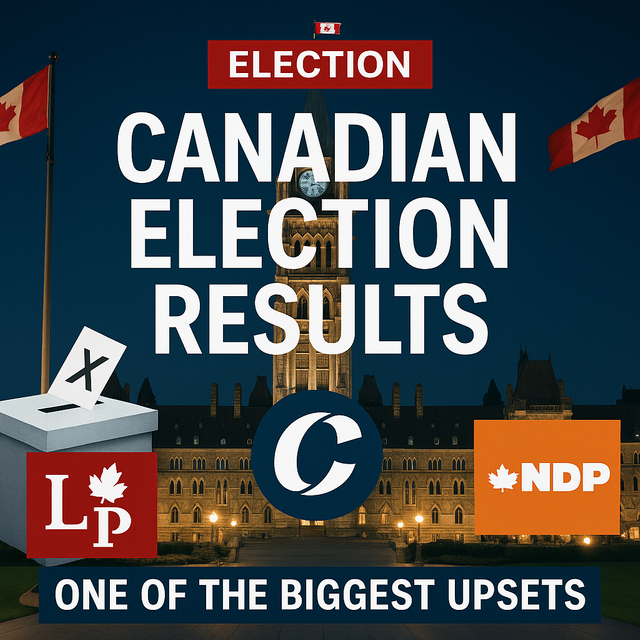🇨🇦 Breaking Down the Canadian Election Results: What Just Happened and What It Means for the Future
As “Canadian election results” trend globally on Google, many are turning their eyes toward the Great White North to understand what’s shifting in its political landscape. Whether you're a political enthusiast or just catching up on the buzz, this post breaks down the key outcomes, surprising twists, and what it all means for Canada's future.
🗳️ The Election Outcome: A Quick Overview
The 2025 Canadian federal election has delivered surprising results, already sparking national and international conversations. Here’s what we know:
Liberal Party, led by Mark Carney, secured 167 seats, just shy of the 172 needed for a majority, and will form a minority government.
Conservative Party, under Pierre Poilievre, won 133 seats, marking a significant gain but falling short of expectations.
The voter turnout was approximately 65.95%, a slight decrease from the previous election.
Key battleground provinces like Ontario, Quebec, and British Columbia played decisive roles in shaping the outcome.
🔥 One of the biggest upsets came from Pierre Poilievre, the Conservative leader, who unexpectedly lost his long-held Carleton seat to Liberal challenger Bruce Fanjoy.
📊 Google Trends: Why Is Everyone Searching for “Canadian Election Results”?
Within hours of polls closing, Google reported a major spike in searches related to Canadian politics. Here's why this election is drawing so much attention:
Global curiosity over Canada's shift in leadership or policy direction.
Controversial candidates and hot-button issues like climate change, immigration, and healthcare.
Impact on U.S. and international relations, especially in the context of trade and diplomacy.
🔍 Key Issues That Shaped the Vote
Several critical topics swayed voters this election:
Affordability Crisis – Rising housing and living costs became a decisive issue, especially for young and urban voters.
Healthcare – Post-COVID reforms, mental health funding, and privatization fears influenced many rural and elderly voters.
Climate Action – With wildfires and extreme weather events fresh in memory, voters demanded concrete environmental plans.
🤔 What This Means for Canada (and the World)
Regardless of which party takes power, the results signal a shift in public priorities. Here's what to watch next:
Policy shifts in taxation, foreign policy, and environmental regulation.
New leadership dynamics in Parliament and potential coalition-building.
International reaction, especially from the U.S., EU, and G7 countries.
🧠 Canada’s direction post-election will shape not just its domestic future, but its role on the global stage.
💬 Final Thoughts
The Canadian election results show a country at a crossroads — divided on some issues but united in wanting change. With a new (or renewed) government taking charge, the coming months will be critical in shaping the policies that affect not just Canadians but their global neighbors.
🖊️ Your Turn
What do you think about the election outcome? Was it what you expected? Share your thoughts in the comments and let’s discuss!
🔁 Don't Forget to Upvote & Resteem!
If you found this article helpful, trending, or thought-provoking, give it an upvote and resteem so others can join the conversation too. 🇨🇦✨
